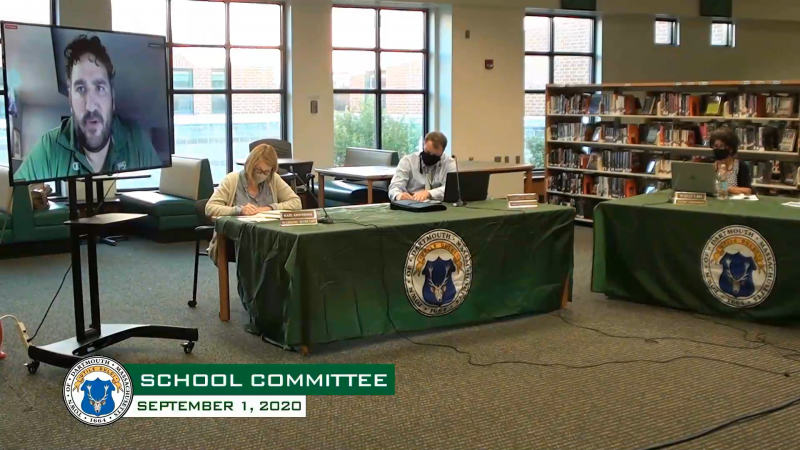No sports fans allowed as athletics to kick off amid pandemic
No sports fans will be allowed to watch Dartmouth High School games in person this fall, according to a pandemic safety plan presented by Athletic Director Andrew Crisafulli and approved unanimously by the School Committee at a meeting on Sept. 1.
Although Dartmouth public schools will start the year with remote learning on Sept. 15, sports will be allowed at school facilities with strict safety guidelines in place.
Lower-risk fall sports — including soccer, volleyball, cross country, golf and field hockey — will go ahead through November, while higher-risk fall sports like football, unified basketball, and cheer will be moved to a new “floating” Fall II sports season starting in February.
If all goes well, the four-season model will see each season up to eight weeks, with the fall season starting Sept. 16 and continuing through mid-November, winter from the end of November through February vacation, Fall II from the end of February until April vacation, and spring starting after spring break and continuing through the end of school in June.
But until safety guidelines change, sports fans will not be allowed to attend games, Crisafulli noted, stressing that coaches and staff will need to keep their attention to maintaining safety for the players on the field.
“I think it is extremely crucial,” he said of the change. “It certainly will not be popular.”
Officials are working to instead stream varsity games online via YouTube and possibly Dartmouth Community TV.
“We have to make the best of a tough situation,” Crisafulli noted.
The athletic department will work to hold eight to 12 games each season — a standard made more complicated from the fact that it is still unclear which schools will hold the same sports at the same level.
State officials have already cancelled fall tournaments, with decisions on tournaments in later seasons to be determined depending on the coronavirus situation.
Other safety precautions include grouping students into ‘pods’ of up to 10 kids for practices, limiting all those traveling to games to 24 people, banning the use of locker rooms and removing benches from fields to prevent student-athletes from congregating.
The rules for the sports themselves have also changed according to safety guidelines — for instance, there will be no throw-ins at soccer games. Coaches and staff will be given time to adjust and will also be required to take an online course on Covid-19 prevention.
Student-athletes will also be given a bag with masks, sanitizer, and disinfecting wipes to ensure their own equipment is sanitized after each use.
The overarching focus, Crisafulli emphasized, is on students’ physical, social, and emotional health, safety, and well-being.
User fees will remain at $50 per student for the season, “whether we play for four weeks or eight weeks,” he said.
But he is optimistic about relaxing some of the regulations if health officials make progress against the virus.
“A lot of the restrictions and recommendations do change quite often, and it is my hope and everyone else’s hope that as the year progresses, the situation with Covid-19 and people's health improves,” Crisafulli said.
Members of the School Committee thanked Crisafulli and his staff for their hard work before voting unanimously to go ahead with the plan.















